Windhorse:Evolution and their Social Fund: two new projects
by Samata, UK
Windhorse:Evolution is the largest and most profitable of the FWBO’s many Right Livelihood businesses, with a turnover of some UK £10 million and employing over 200 people. They have always aimed to make a profit and to give that profit away as dana. At first they simply asked Sangharakshita to direct them in this; in recent years they have created five independent funds and distributed their dana among them. One of these is the Windhorse Social Fund which aims to invest in social projects close to their main suppliers, and they now contribute around £20,000/year to this as part of their ‘Trade for Aid’ initiative.
Samata writes about two new social projects supported by Windhorse -
The Wheatfield Plan
Niall is a buyer who visits some of our regular suppliers. Earlier this year he visited Fok Kwong, in China, one of our main suppliers, who provide Windhorse with the metal windchimes that account for 10% of their turnover. Niall wrote: “This company is owned by an intriguing Hong Kong couple, Cecilia and Simon, who are both very dedicated to a number of educational and social projects. A few years ago, Windhorse joined Fok Kwong in setting up a 'Relief Fund’ that provided scholarships to children at Koa Chau Primary School in rural North China. The fund also provides for computer training for their 800 pupils, hoping to match the opportunities that children in urban schools would have. Since then, Cecilia and Simon have spent a week there most months teaching English and life skills, and encouraging the teaching staff in their efforts. However, they now feel that this school is managing well and on it’s own it is time to turn their attention to a new project called the Wheatfield Plan”.
This initiative, to which Windhorse will contribute £5,000, supports temporary teachers. China has around 250,000 temporary teachers, many of whom serve in remote and underdeveloped areas. They lead a difficult life with little pay. In parts of mountainous western China, a temporary teacher may earn only 300 to 400 Yuan a month (£20.00 – £26.00 a month), and that is often delayed, sometimes for 20 months.
Peng Shafu, one such teacher, moved to a remote village after his graduation two years ago and became a temporary teacher. He had to spend two hours each morning climbing up a mountain to reach the children. He almost gave up; he couldn’t imagine a life of walking four hours every day, just for 400 Yuan a month (£25).
Peng taught 12 students at the beginning. The schoolroom was a temporary space off a farmer’s courtyard. It wasn’t until February 2006 that the village had its first ever primary school, complete with a classroom, an office, and a bedroom for Peng - all with the help of The Wheatfield Plan, a local NGO.
Mo Fan, 25, set up the Wheatfield Plan in 2005. When he saw the children who lived in the rural mountain villages without much to live on and with no education, he decided there was an urgent need to build schools and provide teachers for them. This is achieved mainly through providing subsidies to temporary teachers. In these areas “kids drop out of school not because their families, though poor, can’t afford to pay, but because there aren’t any teachers,” said Mo. “When we help teachers, we are helping kids”.
The other aims of the Wheatfield Plan are to help children who have ‘dropped out’ to return to school and continue their education; to build a library of books; to build schools; to subsidise students; to provide clothing and books to students; to provide assistance to teachers and students with physical disabilities.
The Kupu-Kupu Foundation
During a buying trip to Bali in September Vajraketu (windhorse:evolution’s chief buyer) made his first visit to the Kupu-Kupu Foundation’s Centre in the town of Ubud and met its director, Begonia Lopez. On his return he said “One cannot help but be struck by seeing these disabled kids happy and lively, knowing that without this Centre provided by the Foundation they would be stuck at home and out of sight”. He was also struck by Begonia’s emotional positivity, her ability to communicate with the children and adults, and her capacity to get things done.
The island of Bali has more than 13,000 people with physical and mental disabilities and Vajraketu was at pains to point out that the Kupu-Kupu Foundation is a small non-profit project with no consistent source of funding. It relies on ad hoc funds from sources ranging from Provincial Councils in Spain, to individual tourists who return home and begin fundraising for the Foundation. Begonia herself is a social worker from Spain and first became aware of the plight of disabled people in Bali while visiting as a tourist in 2000.
Through the work of its Centre in Ubud the Foundation is helping children, teenagers and adults with physical and mental disabilities.
Mobility for the Disabled
Mobility is one of the most important needs for a person with a disability and is the first thing the foundation tries to achieve. Mobility means opportunities to make friends and be a part of their own communities while using a wheelchair. In its first 6 years of operation the Foundation has given wheelchairs to more than 85 people.
Begonia writes; ‘For most of them it is the first time that they see a wheelchair. Giving a wheelchair is not enough, we have to make sure that each person is trained how to use one on a daily basis and to gain confidence to develop their full potential with it. Being in a wheelchair they have to learn how to go up and down ramps, and what to do in front of steps etc. First we train them over a period of time at school and at home, then we make ramps in their houses and after we continue to encourage the family to use the wheelchair with our disabled friend otherwise we know that without persuasion and continuous encouragement the wheelchair will be left to rust in the back garden. Families with disabled children often keep taking their kids in their arms because it is more comfortable for them and easier. We try to make them realise that doing it this way makes the child more dependent and feel more disabled. Using the wheelchair is most important. We have as well organized programmes to take them out of their compounds while using the wheelchairs’. One such program that Vajraketu mentioned is a monthly visit to the house of an Australian couple to use their swimming pool – an outing that is eagerly anticipated by children and adults alike.
Begonia continues; ‘Many of them upon joining the Foundation feel ashamed, shy and scared of their conditions. They don’t want to be seen but little by little their lives are changed. We have seen beautiful transformations over time. Sometimes it is hard to believe that they are the same people we initially met’.
These crucial wheelchairs, and spare parts, provided by the Foundation have been provided through sponsorship from Japanese schools, as well as from individuals from Australia and New Zealand who bring wheelchairs from their countries.
Kupu-Kupu Gallery
In 2004 the Centre opened a shop in Ubud, an important cultural centre on the island that attracts many visitors. The shop is called Kupu-Kupu Gallery and sells handicrafts made by the foundation’s disabled friends in order to help them earn their own income and eventually gain economic independence. The shop also provides work for three disabled adults who before starting their jobs were constantly in their family compound and had little contact with others outside their immediate family. One is a painter, one is a wood sculptor and one is a coconut carver.
The Future
The hardest thing Begonia finds is raising money for on-going running costs. The £3000 donation Windhorse sent the Foundation in May 2007 has been put towards running costs and on his visit Vajraketu was satisfied the money had been put to good use. Our supplier PT. Sumiati, based in Bali, are also supporting the Foundation and helping with the administration of finances.
Begonia would very much like to open a second Centre and school in the Bangli District of Bali, in order to reach disabled people they currently just cannot get to. She has received a grant from the Council of Vitoria in Spain to buy a piece of land and now needs to raise the money to build the school-cum-Centre.
Vajraketu would like to see windhorse adopt the Kupu-Kupu Foundation as a project that we support in an on-going way and we have promised funds to build the school in Bangli once the land has been purchased. Vajraketu said: “I’d happily support Begonia’s work, she’s inspired and very genuine. What she’s doing really does bring sunshine into people’s lives and a little money goes a long way in Bali”.
Windhorse:Evolution is the largest and most profitable of the FWBO’s many Right Livelihood businesses, with a turnover of some UK £10 million and employing over 200 people. They have always aimed to make a profit and to give that profit away as dana. At first they simply asked Sangharakshita to direct them in this; in recent years they have created five independent funds and distributed their dana among them. One of these is the Windhorse Social Fund which aims to invest in social projects close to their main suppliers, and they now contribute around £20,000/year to this as part of their ‘Trade for Aid’ initiative.
Samata writes about two new social projects supported by Windhorse -
The Wheatfield Plan
Niall is a buyer who visits some of our regular suppliers. Earlier this year he visited Fok Kwong, in China, one of our main suppliers, who provide Windhorse with the metal windchimes that account for 10% of their turnover. Niall wrote: “This company is owned by an intriguing Hong Kong couple, Cecilia and Simon, who are both very dedicated to a number of educational and social projects. A few years ago, Windhorse joined Fok Kwong in setting up a 'Relief Fund’ that provided scholarships to children at Koa Chau Primary School in rural North China. The fund also provides for computer training for their 800 pupils, hoping to match the opportunities that children in urban schools would have. Since then, Cecilia and Simon have spent a week there most months teaching English and life skills, and encouraging the teaching staff in their efforts. However, they now feel that this school is managing well and on it’s own it is time to turn their attention to a new project called the Wheatfield Plan”.
This initiative, to which Windhorse will contribute £5,000, supports temporary teachers. China has around 250,000 temporary teachers, many of whom serve in remote and underdeveloped areas. They lead a difficult life with little pay. In parts of mountainous western China, a temporary teacher may earn only 300 to 400 Yuan a month (£20.00 – £26.00 a month), and that is often delayed, sometimes for 20 months.
Peng Shafu, one such teacher, moved to a remote village after his graduation two years ago and became a temporary teacher. He had to spend two hours each morning climbing up a mountain to reach the children. He almost gave up; he couldn’t imagine a life of walking four hours every day, just for 400 Yuan a month (£25).
Peng taught 12 students at the beginning. The schoolroom was a temporary space off a farmer’s courtyard. It wasn’t until February 2006 that the village had its first ever primary school, complete with a classroom, an office, and a bedroom for Peng - all with the help of The Wheatfield Plan, a local NGO.
Mo Fan, 25, set up the Wheatfield Plan in 2005. When he saw the children who lived in the rural mountain villages without much to live on and with no education, he decided there was an urgent need to build schools and provide teachers for them. This is achieved mainly through providing subsidies to temporary teachers. In these areas “kids drop out of school not because their families, though poor, can’t afford to pay, but because there aren’t any teachers,” said Mo. “When we help teachers, we are helping kids”.
The other aims of the Wheatfield Plan are to help children who have ‘dropped out’ to return to school and continue their education; to build a library of books; to build schools; to subsidise students; to provide clothing and books to students; to provide assistance to teachers and students with physical disabilities.
The Kupu-Kupu Foundation
During a buying trip to Bali in September Vajraketu (windhorse:evolution’s chief buyer) made his first visit to the Kupu-Kupu Foundation’s Centre in the town of Ubud and met its director, Begonia Lopez. On his return he said “One cannot help but be struck by seeing these disabled kids happy and lively, knowing that without this Centre provided by the Foundation they would be stuck at home and out of sight”. He was also struck by Begonia’s emotional positivity, her ability to communicate with the children and adults, and her capacity to get things done.
The island of Bali has more than 13,000 people with physical and mental disabilities and Vajraketu was at pains to point out that the Kupu-Kupu Foundation is a small non-profit project with no consistent source of funding. It relies on ad hoc funds from sources ranging from Provincial Councils in Spain, to individual tourists who return home and begin fundraising for the Foundation. Begonia herself is a social worker from Spain and first became aware of the plight of disabled people in Bali while visiting as a tourist in 2000.
Through the work of its Centre in Ubud the Foundation is helping children, teenagers and adults with physical and mental disabilities.
Mobility for the Disabled
Mobility is one of the most important needs for a person with a disability and is the first thing the foundation tries to achieve. Mobility means opportunities to make friends and be a part of their own communities while using a wheelchair. In its first 6 years of operation the Foundation has given wheelchairs to more than 85 people.
Begonia writes; ‘For most of them it is the first time that they see a wheelchair. Giving a wheelchair is not enough, we have to make sure that each person is trained how to use one on a daily basis and to gain confidence to develop their full potential with it. Being in a wheelchair they have to learn how to go up and down ramps, and what to do in front of steps etc. First we train them over a period of time at school and at home, then we make ramps in their houses and after we continue to encourage the family to use the wheelchair with our disabled friend otherwise we know that without persuasion and continuous encouragement the wheelchair will be left to rust in the back garden. Families with disabled children often keep taking their kids in their arms because it is more comfortable for them and easier. We try to make them realise that doing it this way makes the child more dependent and feel more disabled. Using the wheelchair is most important. We have as well organized programmes to take them out of their compounds while using the wheelchairs’. One such program that Vajraketu mentioned is a monthly visit to the house of an Australian couple to use their swimming pool – an outing that is eagerly anticipated by children and adults alike.
Begonia continues; ‘Many of them upon joining the Foundation feel ashamed, shy and scared of their conditions. They don’t want to be seen but little by little their lives are changed. We have seen beautiful transformations over time. Sometimes it is hard to believe that they are the same people we initially met’.
These crucial wheelchairs, and spare parts, provided by the Foundation have been provided through sponsorship from Japanese schools, as well as from individuals from Australia and New Zealand who bring wheelchairs from their countries.
Kupu-Kupu Gallery
In 2004 the Centre opened a shop in Ubud, an important cultural centre on the island that attracts many visitors. The shop is called Kupu-Kupu Gallery and sells handicrafts made by the foundation’s disabled friends in order to help them earn their own income and eventually gain economic independence. The shop also provides work for three disabled adults who before starting their jobs were constantly in their family compound and had little contact with others outside their immediate family. One is a painter, one is a wood sculptor and one is a coconut carver.
The Future
The hardest thing Begonia finds is raising money for on-going running costs. The £3000 donation Windhorse sent the Foundation in May 2007 has been put towards running costs and on his visit Vajraketu was satisfied the money had been put to good use. Our supplier PT. Sumiati, based in Bali, are also supporting the Foundation and helping with the administration of finances.
Begonia would very much like to open a second Centre and school in the Bangli District of Bali, in order to reach disabled people they currently just cannot get to. She has received a grant from the Council of Vitoria in Spain to buy a piece of land and now needs to raise the money to build the school-cum-Centre.
Vajraketu would like to see windhorse adopt the Kupu-Kupu Foundation as a project that we support in an on-going way and we have promised funds to build the school in Bangli once the land has been purchased. Vajraketu said: “I’d happily support Begonia’s work, she’s inspired and very genuine. What she’s doing really does bring sunshine into people’s lives and a little money goes a long way in Bali”.
Labels: Dana, Right Livelihood, Windhorse


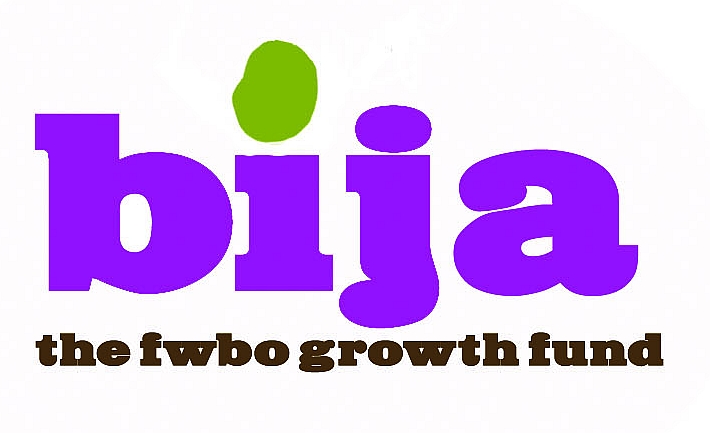
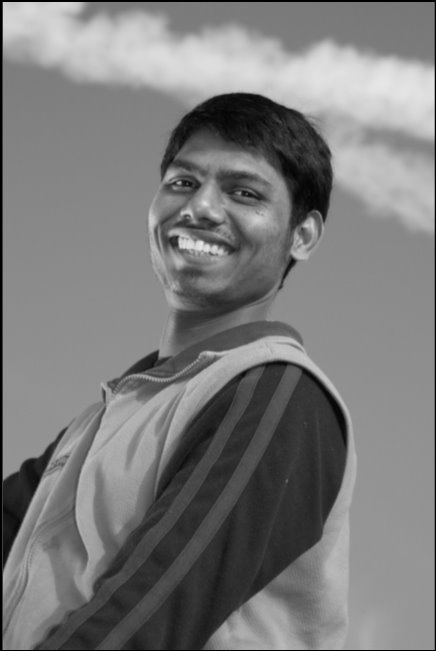
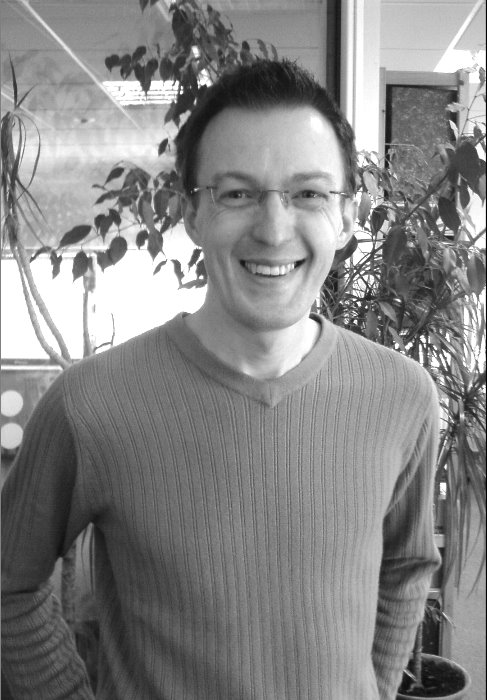


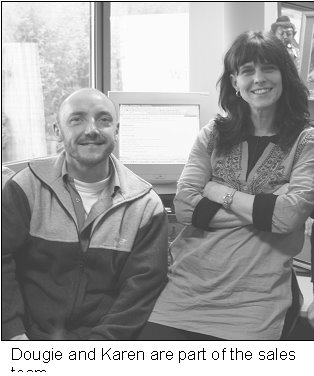
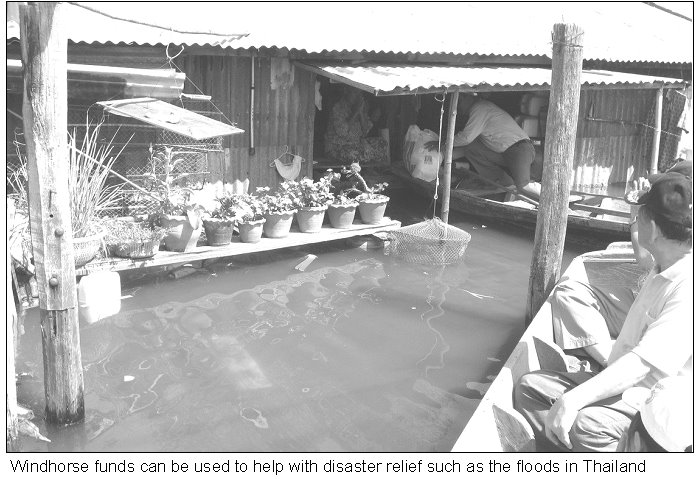
 rss
rss